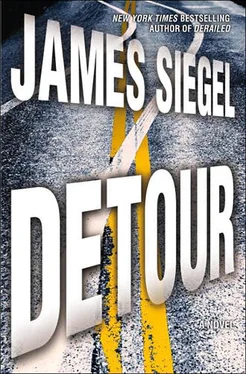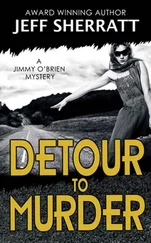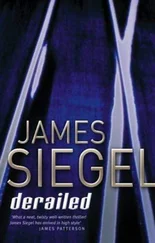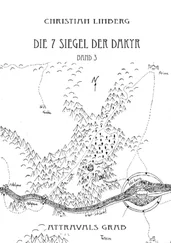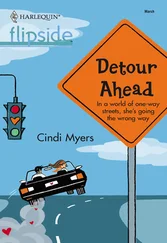Paul guessed that going to work without his yarmulke was another one of Miles’ little rebellions against prescribed living. “Did you ever think about not being Orthodox?”
“Sure. But then what would I be? It’s sort of like asking a black person if he ever thought about not being black. You can think about it all you like, but it’s kind of who you are.”
“So? Are there rules about betting on baseball games?”
“Yeah—you have to stay away from the Padres.” Miles turned up the radio for the National League scores.
Paul felt like mentioning that he and his coworkers had spent more lunch hours than he cared to remember establishing risk ratios for specific pitches thrown to specific batters in specific parks. A bunch of regular Bill Jameses. He could’ve told Miles, for example, that throwing a down-and-in fastball to Barry Bonds in 3-Com Park had a risk-to-reward ratio of three to one. Every two times you got Barry, he’d launch one into the stratosphere.
He didn’t, though.
Paul understood Miles was talking about sports so they wouldn’t have to talk about something else. What they were doing. Meeting drug dealers in a swamp outside Jersey City. If they talked about it, they would be forced to acknowledge that they were hopelessly out of their element.
“Thank you,” Paul said.
“For what?”
“For doing this with me, I guess.”
Miles remained silent for a minute. “I sent you to Bogotá. I told you you’d be safe. That makes me kind of responsible, doesn’t it?”
“Great. Can I hire you to sue yourself?”
“Sorry. I don’t do suits.”
“How long have you been a lawyer?” Paul asked after turning up the AC.
“How long?” Miles repeated, as if he’d never been asked that particular question before. “Too long. Not long enough. Depends on the day.”
“Why did you want to be a lawyer?”
“I didn’t. I wanted to be Sandy Koufax. God didn’t cooperate. My fastball was more like a change. If you can’t be Sandy, you get to be a doctor or lawyer. Indian chief wasn’t available—it should be, we’re a tribe, aren’t we? I went for lawyer. Maybe not the kind of lawyer they expected.”
“They?”
“You know, all the wise men of the tribe. Everyone goes real estate, tax, or corporate. I went legal aid. Juvenile division.”
“What was that like?”
“Crazy. I had a caseload of about a hundred fifty. I’d get about ten minutes with each kid and a quick glance at their file before saying hi to the judge. That was it. And it’s not like I could do any pleading-out there.”
“Why not?”
“You couldn’t threaten the prosecutors with a long jury trial because there are no juries in juvenile, and kids don’t really have any information worth trading. No one wants to deal. The best I could do was get them committed to a Bronx hospital, because it was safer than putting them in a juvenile hall.”
“Hospital?”
“Yeah, a mental hospital. They’d do their time popping meds instead of getting gang-raped. Trust me—it was heaven next to your average juvenile prison. For them it was the safest place on earth. Anyway, when I got to court and began mistaking Julio for Juan, and María for Maggie, I thought I might be in trouble. I told my supervisor he had to lessen my caseload—that I was committing borderline malpractice. He said keep dreaming . I left.”
“So you went from juvenile delinquents to Colombian babies.”
“Yeah. I thought I’d get involved at an earlier stage of development. It pays better. What about you?”
“Me?”
“Yeah. Hard to believe you always wanted to be an insurance man. What did you do—fall into it?”
No, not fall, Paul thought. My mom died, he wanted to say. My mom died and I got scared. He felt like explaining this to Miles, that like Einstein, he was merely trying to impose order and probability on a cold universe.
“More or less,” was all he said.
A dirt road appeared to the passenger side of the car—not so much a road as an indentation in the muck. A trail to nowhere in particular.
Miles slowed, then pulled over.
“They said a dirt road about three miles down,” he said, trying to peer ahead down the mostly hidden path. “Oh well . . .” He turned the car into the opening, bouncing over a small hump.
Suddenly, cattails were scouring both sides of the Buick, making it feel as if they were traveling through a car wash. Paul, who’d hated roller coasters as a kid, hadn’t liked car washes much either. His fervid imagination had attributed a malevolence to those stiff bristles, smothering sponges, and scalding jets of water.
He felt the same kind of vulnerability now. The car was safety. Outside in the swamp, who knew?
He peered through the windshield, which had quickly become a battlefield of slaughtered swamp bugs. Miles turned on the wipers in an effort to clear them—but it was as if they were beating against a monsoon.
When the road ended, they were in a small clearing all by themselves. Miles stopped the car.
“I guess this is it,” Miles said. He tapped the steering wheel, once, twice, peering nervously from side to side. Miles might’ve felt half responsible for Paul’s predicament, but it seemed like he might be having second thoughts about actually accompanying him. “What’s the protocol with drug deals? Half-hour waiting time?” He looked at his watch. “We’re five minutes early.”
Paul said, “Are you sure this is it?”
“No.”
“Great. Just checking.”
Ten minutes went by. Miles commented on the weather, then immediately ran out of small things to say. Paul understood. Making conversation when you’re scared shitless was an effort. Paul rubbed his hands together and attempted to swallow his own dry spit.
Paul heard the car first.
“Someone’s coming,” he said.
A minute later a blue Mercedes-Benz emerged out of the cattails and came to a lurching stop about twenty feet from them.
Both cars sat there, facing each other.
“Okay,” Miles said after a good minute went by, “I guess we get out.”
Miles flipped the trunk switch, pushed his door open, and gingerly stepped out of the car. Paul followed.
They met at the back of the car.
“You want to hold it?” Miles said. “Or me?” The well-traveled black bag was peeking out from under an old tarp.
“I’ll take it,” Paul said. “I’m the one who was supposed to deliver it in the first place.”
He pulled his bag out. No one had gotten out of the other car. It was still sitting there, its engine idling, no discernible movement from inside.
“Did you hear the one about the lawyer and the actuary?” Miles said.
“No.”
“Me either.”
They approached the Mercedes side by side. It reminded Paul of a western—just about every western ever made, where the two lawmen stride toward the gunslingers shoulder-to-shoulder in the movie’s final showdown. As a responsible actuary he would be remiss not to mention that legions of western heroes had defied the odds—roughly fifty-fifty—of getting their heads blown off.
The Mercedes’ driver’s door opened. Two men stepped out of the car. They might’ve been car salesmen. No mirrored sunglasses, heavy gold chains, or garish tattoos. Instead, they wore well-pressed chinos and golf shirts. One in a powder-blue Izod, the other opting for a striped Polo.
The driver—he was in Polo—nodded at them. “You guys look a little nervous.”
Okay, Paul thought, give him points for being perceptive.
“Which one’s Paul, huh?” he asked. He spoke with a noticeable accent—Colombian, Paul assumed. His voice was high-pitched, almost girlish.
Читать дальше
